“Elephant Training” and Highway Traffic
The day started with a great symphony of light over the mountains. We left the hotel around 9 o’clock; school boys and girls in green and red uniforms were rushing along the street. I was in a meditative mood looking over the tea plantations interspersed with mimosa or eucalyptus trees. After Ooty there came the steep descent into the valley, with 36 hairpin bends. We then entered again into the tiger reserve. After a while our driver stopped and said, “An elephant!” There was a huge black figure looking to us through the bushes. I waved to him, and as in reply he started waving with his trunk. For a moment there was a feeling of friendship and relatedness in the air.
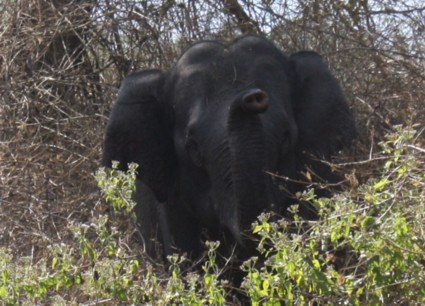
Some moments later we saw other elephants, but as prisoners in chains, with a rider on the neck. I was reminded of an old book we saw at our visit in Mysore about “elephant training” in the beginning of the last century, how these huge animals were forced into traps, then “trained” with brutal violence to obey and later sent to the palace of the Maharaja for display of power… It seemed that there was sadness in the eye of the elephant.
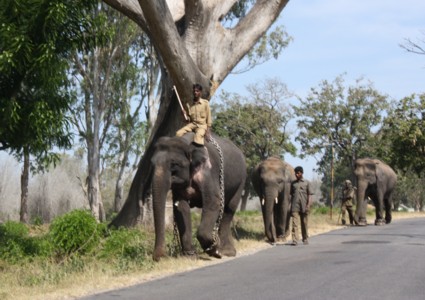
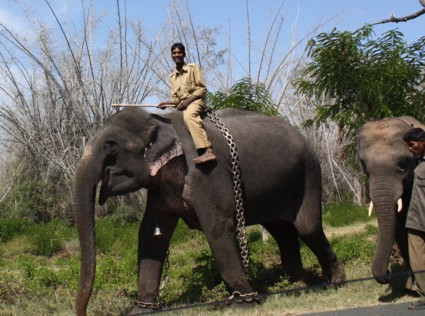
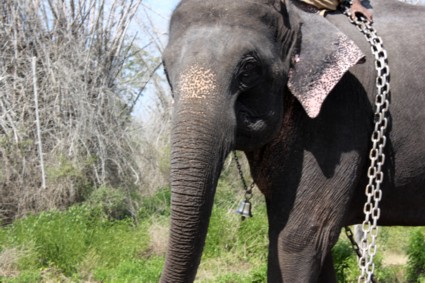
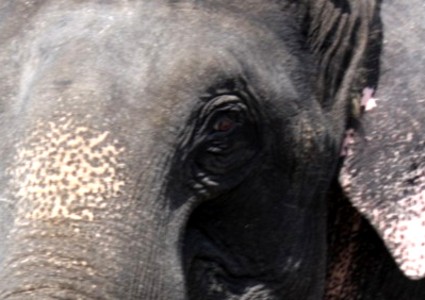
The road continued through towns and cities – we crossed the living spaces of many people just for a short moment, like on-lookers from another planet. Small lorries packed with vegetable and some people sitting on the top, seemingly ready to fall off… Bullock carts with huge heaps of hay blocking lanes on a highway… I never found out on which side cars should double or drive – it seemed “anything goes”. And then tuck-tucks packed with 12 people or more, colourful trucks blowing clouds of black exhaust gas into the air, the whole mingling into a never ending flow. After 7 hours ride we arrived again at Tapovan in Bangalore, where a hot coffee helped us to revive our spirits.
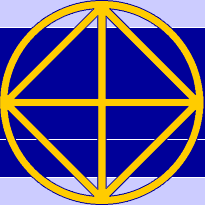


January 5th, 2013 at 3:25 pm
Good that you could link with the vintage pictures you saw in my friend Ramaswamy’s house regarding elephant-catching [called Khedda]. The “Khedda operations” was stopped many years ago.